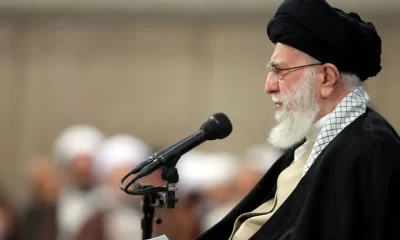Oil extended gains after an industry report showed a bigger-than-expected drop in American crude inventories and as Iran ruled out a meeting with the U.S.
The American Petroleum Institute said stockpiles fell by 11.1 million barrels last week, according to people familiar with the data. That would be the largest decline since June if confirmed by government figures due Wednesday.
The prospect of more tension in the Persian Gulf is keeping the geopolitical risk premium intact after Iranian President Hassan Rouhani responded to President Donald Trump’s suggestion of a meeting by saying the U.S. must lift sanctions on the Islamic Republic first.
“The mammoth crude inventory draw has, at least for the time being, put to rest those U.S. recessionary doom and gloom fears,” Stephen Innes, managing partner at VM Markets Pte in Singapore, said in a note.
The decline in gasoline and distillate stockpiles is “especially comforting to investors as we are entering the last long weekend of the peak U.S. driving season,” he said.
West Texas Intermediate crude for October delivery rose 69 cents, or 1.3%, to $55.62 a barrel on the New York Mercantile Exchange as of 7:44 a.m. in London, after climbing as much as 80 cents earlier. The contract closed up $1.29 on Tuesday.
Brent for October settlement advanced 57 cents, or 1%, to $60.08 a barrel on the ICE Futures Europe Exchange. It settled 1.4% higher on Tuesday. The global benchmark crude traded at a $4.46 premium to WTI.
U.S. crude inventories fell by 2.85 million barrels in the week through Aug. 23, according to a Bloomberg survey of analysts. If the API figures are confirmed by Energy Administration data, it will be the second drop in a row following two weeks of gains that raised recessionary fears.
The Organization of Petroleum Exporting Countries and its allies said they expect a “significant” decrease in global crude inventories in the second half after they trimmed output more than planned. The Joint Ministerial Monitoring Committee, composed of key nations from the OPEC+ coalition, said the group’s implementation of cutbacks was 159% in July.

 Football2 days ago
Football2 days ago
 Business1 week ago
Business1 week ago
 Business1 week ago
Business1 week ago
 Education1 week ago
Education1 week ago
 Crime1 week ago
Crime1 week ago
 Covid-191 week ago
Covid-191 week ago
 Latest6 days ago
Latest6 days ago
 Business1 week ago
Business1 week ago













